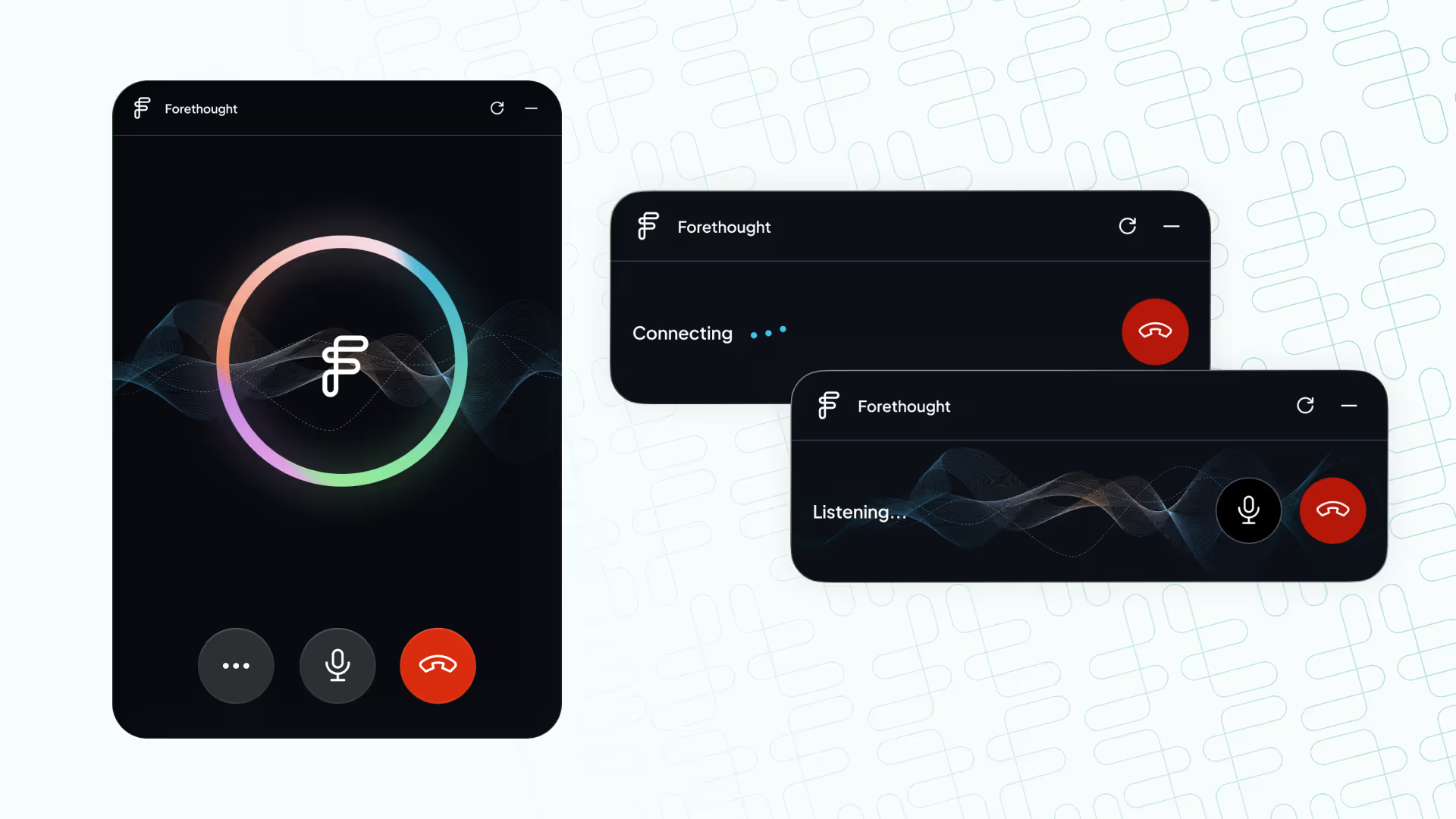Conversational AI is having a massive impact on various industries, especially within customer support. In just the past few years we've seen amazing digital transformations take place all with the help of technological advancements that are meant to positively impact businesses. These conversational AI use cases are transforming the way we use tech for customer support.
Conversational AI can also work with other technologies such as speech recognition, sentiment analysis, and dialogue management to help automatically respond to customer needs. Conversational AI requires input data from humans to be able to understand and communicate with one another, when it all comes together correctly you can transform how you interact with your customers and make work life that much better for your agents.
The impact of conversational AI doesn't just stop at what it can do for business—in fact conversational AI is projected to reach a market value worth of $29B by 2028.
We've all heard about conversational AI automating the most mundane tasks for support teams, but what exactly is it doing in specific industries? The conversational AI use cases are endless. There's a lot going on in the world of artificial intelligence and customer support, so let's take a look at the most popular use cases for conversational AI.
8 Popular Conversational AI Use Cases
From the ability to deflect the simplest inquiries to the power to help customers reset banking passwords and track packages, conversational AI is doing a lot to help people. There are many use cases for this tool these days.
And what do customers want most? For brands to provide them with the right information at every stage of their buyer's journey across all available channels and at all times. Sound impossible?
Let's take a look at top industry use cases. Each use case is designed to improve customer service and customer interaction while enhancing user experience.
Customer Service
Customer support services is where we're seeing the most impact from conversational AI. Did you know that conversational AI is actually delivering $11B in annual cost savings each year by helping businesses save over 2.5 billion customer service hours?
It's not just a matter of helping customers find the solutions they need in a timely manner. Conversational AI is making the life of agents so much better too. With agents spending up to 3 hours of their daily work day doing tasks that could be easily automated, there's always room for improvement with conversational AI.
Here's where AI is helping both agents and customers:
- Better Agent Experience — AI helps agents do their jobs better; with the help of conversational AI support representatives can get through tickets much faster and still allow for high quality interactions with customers.
- More Self-Service — Conversational AI helps customers help themselves. By having a tool that can better leverage your knowledge base and company data, you can help customers help themselves better than ever before. AI can surface answers to the most frequently asked questions, giving customers what they need and deflecting redundant tasks from agent work.
- Improved Support Metrics — Increased rates of self-service and ticket deflection mean one thing: improving your team's goals and support metrics. Looking to reduce response times or increase cases closed per hour? Conversational AI is the tool your support team needs to help increase customer satisfaction.
E-commerce
It's hard to imagine retail without the world of e-commerce. Thanks to the endless digitization of everyday activities, it's become even easier to use our devices for everything, including shopping.
According to Forbes, more than 2 billion people made online purchases in 2020 and 2021, and e-retail sales totaled $4.2 trillion globally. With such a massive volume, there is clearly significant opportunity to utilize conversational AI for e-commerce businesses. Here are a few examples:
- Automated Purchasing — Conversational AI can help customers automatically make purchases online, set up automated repeat orders, and deal with any issues regarding their purchases.
- Insightful Data — AI isn't just helpful for the people using it, it can actually give very insightful data for businesses as a whole. By taking in data every single day, AI can help you learn about customer buying habits, get feedback, and help you strategize.
- Boost NPS and CSAT — The best customer insights come after their interactions. With AI you can access data regarding customer metrics and use it to improve business operations across the board.
Banking & Financial Services
Think about the last time you had to deal with a banking issue. You probably didn't physically go to the bank. You likely opened your bank app, chatted with customer support, or found what you were looking for on your own.
Within the banking and financial services industry, conversational AI is being used to reduce friction and make banking easy for customers to manage on their own. Besides automating function and conversations, AI has helped reduce operating costs, and improve the overall customer experience.
- Account Management — Conversational AI or a banking virtual assistant can check customer balances and process transactions across all bank accounts, help make transfers, freeze accounts, or increase limits with the help of artificial intelligence.
- Analyze Data — Businesses can learn a lot from customers' banking tendencies, using the information to push initiatives and create goals that will improve customer experience.
Education
Education is one of the top industries benefiting from automated interactions and artificial intelligence. With COVID-19 moving learning online and institutions going through digital transformations to keep up with the times, it's clear that there is an opportunity to change things within education and leverage AI.
Conversational AI has shown that the education industry is on track to make learning more personalized, accessible, feasible, streamlined, and instant. Check out what AI is doing for education:
- Artificial TAs — AI can help with personalized learning by providing individual artificial teaching assistants that learn about the student and can adapt to their study habits with them.
- Boost Performance — Use artificial intelligence to figure out where students can stand to perform better.
- Set Learning Paces — Everyone learns at their own pace. If following an online learning course, AI can help set the pace for personalized learning.
Retail
There's no place conversational AI (and automation in general) have made a greater impact than within the retail industry. As mentioned above, the world of retail has dramatically changed within the past couple of years. Everything can be managed online, including ordering items, changing orders, making returns, and contacting customer support.
According to a recent IBM study, the adoption of AI in retail and consumer products is expected to grow another 40% in the next three years, increasing the total percentage of companies who are utilizing AI in their customer interactions.
With more and more shoppers taking their habits online, there's a lot to be done with AI in this space.
- Searches — Get the most up-to-date information regarding prices and deals. Machine learning algorithms now show you personalized information based on past retail searches.
- Order Management — Intelligent chatbots have come a long way. They can now be used to manage shopping orders, tracking order status with a bot that can automatically find the information you need.
- Account Management — Chatbots can also help with account management. There’s no need for human interference when AI can reset passwords and set up 2FA for customers.
Insurance
Although insurance has proven to be an industry resistant to change, conversational AI has helped agencies make changes that have improved several insurer pain points while benefiting customer conversations tremendously.
Insurance is finally undergoing a digital transformation and it's using AI to help it. Here are a few examples.
- Assessing Risk — With the emergence of machine learning algorithms, it's become even easier for underwriters and insurance agents to bring in more information and data in order to gauge the risk being taken on by insurance companies. AI is making it possible for agents to take in larger volumes of data and better assess insurance risks.
- Fraud Detection — Insurance is complicated; it is not uncommon for people to lie on insurance applications to try to get better premiums or better coverage. AI can help detect fraud by having accuracy parameters set on applications in order to ensure that information being sent in is accurate and truthful.
- Reducing Human Error — The chain between a person and their insurance policy is wide and complex; there is a series of middlemen who examine information between the insured and the carrier. A lot of information can get lost due to human error and manual work. Conversational AI can reduce human error by analyzing documents and data for you, minimizing the friction and possibility for mistakes.
Travel
Thanks to the internet and advanced technology, travelers no longer have to book their vacations in person or use a travel agent to find flights and accommodations. We've reached an era where people are able to do things online by themselves and even get the help of virtual assistants if needed.
- Booking — AI can help travelers book their flights! Chatbots can be deployed to help travelers find the best deals and actually secure them.
- Skychannel Bots — Have a friend or loved one traveling? Customers can scan the sky for their flight using AI tools that tell them exactly where the flight is currently.
Data Collection
Conversational AI isn't just helpful for your support teams, it can actually help businesses collect and analyze data in order to make important business decisions.
Data is king when it comes to using AI. The more you have and the more your customers are coming to you with questions and needs, the more data you're collecting. Many companies are unsure what their data can help with but there are endless possibilities.
The trick is having a conversational AI tool that can help you take in that data and understand it in order to fill knowledge gaps, help strategize better business practices, and impact both customers and employees positively.
Frequently Asked Questions About Conversational AI Use Cases
Let's clear up some of the most frequently asked questions about conversational AI.
Who Uses Conversational AI?
Everyone, and we mean it! From large financial institutions and big software companies to local online businesses and insurance agencies, conversational AI is widespread. The possibilities for conversational AI within retail, finance, insurance, education, travel, e-commerce, and customer service don't just stop within those industries.
What Is a Common Use Case of Chatbots?
The most common use case for chatbots is ticket deflection, or automating the process of answering your businesses' frequently asked questions for customers in order to reduce human agent workload and customer wait times.
Where are AI Chatbots Used?
AI chatbots are used within all industries. It doesn't matter if a business is within education, travel, retail, e-commerce, finance, or anything else, AI chatbots can make a difference.
Hashtags blocks for sticky navbar (visible only for admin)
{{resource-cta}}
{{resource-cta-horizontal}}
{{authors-one-in-row}}
{{authors-two-in-row}}
{{download-the-report}}
{{cs-card}}






